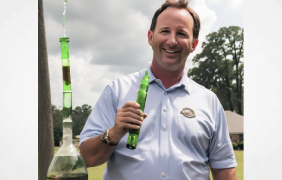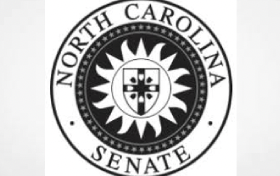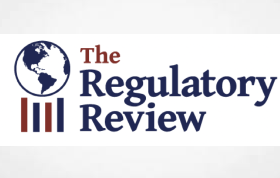Scholar argues that FDA approval should not save drug makers from state-law claims arising from off-label use.
A patient walks into her doctor’s office with a headache. She walks out with a prescription for antidepressants.
Doctors commonly prescribe drugs for purposes other than their intended use, but the legal implications of this practice remain unclear. If patients are injured by such “off-label” use of a drug, should they be able to obtain compensation in court? Or should the fact that federal regulators approved a drug for one use shield its maker from state liability when the drug is used for another purpose?
In a forthcoming article, David A. Simon of Northeastern University School of Law argues that federal regulatory approval should not always prevent consumers from bringing claims against drug makers. When a drug manufacturer promotes its product for uses other than the one approved by the U.S. Food and Drug Administration (FDA)—and when that use causes injury—consumers should have the option to sue the drug maker under state law, Simon contends.
Drug and medical device makers encourage off-label uses to increase sales of their products, Simon explains. Because such uses have not been evaluated by FDA, however, they pose risks to patients. Despite Simon’s contention that consumers should be able to pursue state-law claims when off-label uses cause harm, courts have reached varying conclusions because of their disparate applications of a legal doctrine known as preemption.
Courts derived the doctrine of preemption from the Supremacy Clause of the U.S. Constitution, which prioritizes federal law over state law. Under this doctrine, federal law cancels out state law whenever the U.S. Congress expresses or implies an intent to do so. Simon describes scenarios in which implied preemption can arise: when complying with both state and federal law would be impossible; when doing so would pose an obstacle to the federal regulatory agenda; or when Congress intended to regulate an entire field without any interference from state lawmakers.
FDA approval impliedly preempts many marketing and design defect claims against medical device manufacturers for on-label use. Because FDA performs a risk evaluation as part of its approval process, allowing a state-law claim would conflict with federal law by second-guessing FDA’s review of the device, Simon explains. Federal law also preempts many claims stemming from on-label drug use, although the preemption analysis for drugs differs from that of medical devices.
In contrast, courts have not reached consensus on whether FDA approval should bar state-law claims for injuries related to off-label use. Simon describes two prevailing views. Some courts reason that state-law claims only exist because of federal laws prohibiting certain off-label use promotion. As a result, federal law must preempt the state-law claims that depend on it. Other courts hold that state-law claims are not preempted because the unauthorized uses violate independent state-law duties.
To settle the debate, Simon proposes a review-based theory of off-label preemption. Under his approach, preemption would apply only to risks and uses that FDA has reviewed specifically as part of its risk-benefit analysis. Claims premised on off-label uses—which bear risks that FDA has not contemplated—would not be preempted by federal law.
Simon argues that his review-based theory comports with the U.S. Supreme Court’s existing preemption framework and the doctrine’s fundamental purpose: preventing conflicts between federal and state law. When FDA has not yet made a judgment about a particular application of a drug or medical device, state law can intervene without displacing federal regulation. Simon reasons that since there is no conflict between the two, state law should not be preempted.
Simon argues that his theory simplifies the existing preemption doctrine in important ways. First, it applies a uniform doctrine to both drugs and various medical devices.
Second, it protects from preemption all state-law claims based on manufacturers’ promotion of off-label uses—alleviating the need for a nuanced, claim-by-claim preemption analysis.
Finally, it corrects doctrinal mistakes made by lower courts. Although some courts have conceptualized FDA approvals as permitting whole products, Simon reiterates that FDA approves only specific uses of products. As a result, FDA approval of one use should have no legal bearing on off-label uses.
According to Simon, his theory clarifies this distinction by emphasizing the importance of FDA’s review of a particular use in the preemption analysis.
Simon also offers significant policy justifications for his review-based theory. He contends that his theory remedies information asymmetry problems by shifting the burden of ensuring off-label safety from prescribing physicians to manufacturers. In Simon’s view, this result is appropriate because manufacturers have the most knowledge about their products. Accordingly, he advocates greater accountability for the uses they choose to promote.
Because Simon’s review-based theory would allow state-law claims for off-label use to proceed, it would impose greater liability on manufacturers. Simon reasons that greater liability will deter promotion of risky uses, reducing injury. In addition, it will provide an avenue for consumers to receive compensation when injury does occur. Simon suggests that allowing patients to hold manufacturers responsible for their torts will bolster the legitimacy of the legal system as a whole.
Although some judges have cautioned that greater liability for off-label uses will stifle innovation, Simon rebuts this concern. He argues that manufacturers lack incentives to develop new drugs and devices when they can increase profits by promoting new, unverified uses of their existing products. Ultimately, his preemption theory would mitigate this issue by increasing manufacturer liability for off-label use—encouraging innovation and benefitting patients in need of new treatment options.

















